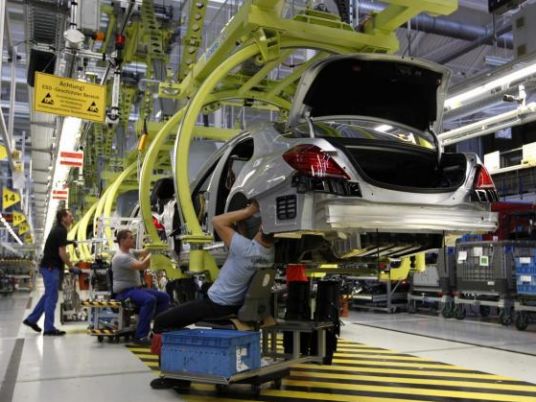
Economic growth in European powerhouse Germany slowed slightly in the third quarter, preliminary data showed Friday, as it braved headwinds from China's economy and the Volkswagen pollution scandal.
Europe's largest economy expanded by 0.3 percent in the July-September period on a quarterly basis, the federal statistics office said, slowing from growth of 0.4 percent in the previous quarter.
As questions arose over the health of the German economy, neighbouring France posted a return to growth in the third quarter with an expansion of 0.3 percent after having earlier stalled.
Finance Minister Michel Sapin told AFP that the latest figures by INSEE mean that France's economy will grow "by at least 1.1 percent" for 2015 as a whole, adding he believed the country had "exited the period of extremely weak growth that had lasted too long".
He said the French economy had entered a "new phase" which would likely mean faster growth next year.
As the situation improves in France, in Germany, clouds have been gathering with factory orders, a key measure of demand, falling for the third month in a row in September, according to data unveiled earlier this month.
Industrial production also slid in September, weighed down by slowing activity in the manufacturing and construction sectors.
Shoppers in Germany are also becoming more reticent in the run-up to the key Christmas period, recent statistics have shown.
Retail sales data stagnated in September and a leading consumer sentiment agency said shoppers were beginning to worry about the economic consequences of the huge influx of migrants flowing into Europe's top economy.
For the third quarter however, it was domestic consumption that helped prop up the growth.
"Both private and public spending have continued to grow," said the statistics office.
ING chief economist Carsten Brzeski warned that "today's GDP data are no relief".
"They only show that consumption on the back of low interest rates, a strong labour market, low inflation and higher wages is still able to offset industrial and export weakness.
"In fact, the summer weakness of the German industry seems to be more substantial than only a vacation-driven soft spell," he noted, pointing out that the emerging markets and in particular China's slowdown has "finally left some marks on the German economy".
But for Berenberg's Holger Schmieding, what is happening are merely small kinks as Germany's economy shift from an export-dependant one to a more balanced mix.
"With buoyant private consumption and a modest fiscal stimulus, domestic demand is rising nicely…
"We expect concerns about emerging markets to fade a bit over the course of next year," he wrote.
Schmieding also believes that the refugee influx could lead to extra public spending that could contribute to a fiscal boost reaching 0.6 percent of output next year.
